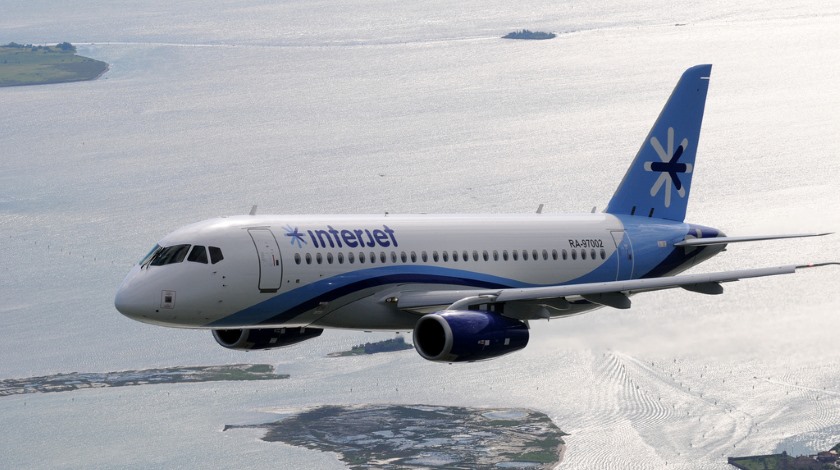Photo: flickr.com
Reading Time: 2 minutesRussia’s Sukhoi Civil Aircraft Co (SCAC), manufacturer of the Sukhoi Superjet 100 (SSJ100) regional jet, is in talks with Mexico’s Interjet Airlines, the largest operator of the type outside Russia, regarding the replacement of its outstanding SSJ100 orders with the aircraft’s upgraded versions.
The Mexican airline has announced it will be phasing out some of its SSJ100 fleet orders in view of the possible delivery of the modernised iteration, which comes equipped with fuel-friendly blended winglets. The move is a part of new three-year strategic growth plan through 2021, the airline announced last week.
Interjet currently operates 22 of the Russian-built jets, all of which were delivered before mid-2016 and, according to the initial contract with the planemaker, the delivery of eight additional aircraft is pending.
Inside Russia, the upgraded aircraft’s wingtip additions – dubbed ‘sabrelets’ because of their sabre-like shape – are to be implemented on the 100 units ordered by Aeroflot last week.
Sukhoi Civil expects to win certification for the modification approval before the end of this year.
“SCAC continues to be a valued Interjet partner and the two companies are in constant discussions to find new and better ways of improving Interjet’s competitive market position as it relates to their fleet and training etc,” Interjet has told to ATO.ru, Russian Aviation Insider’s sister publication.
In its new three-year strategic growth plan, Interjet also mentions plans to install a SSJ100 flight simulator at its Toluca Training Centre and “will have quick access to an enhanced spare parts inventory in Mexico City.”
The initial contract noted that all 30 SSJ100s would be delivered to the Mexican operator before Q2 2017. However, in late 2016, the airline requested SCAC to provide residual value guarantees for the aircraft to enable the calculation of possible sale prices for when it decides to phase out some of its fleet.
In early 2018 the airline reported it had suspended operations of four aircraft due to alleged delays in engine maintenance.
The original equipment manufacturer assured it was supplying the parts and components ordered by the carrier on time, but noted that the size of the spare parts pool depends heavily on financial issues.
According to Interjet’s Q2 2018 report, the airline’s operational expenses surged by 21 per cent year-on-year, reaching 6.2 billion pesos (US$329 million) due mainly to fuel cost spikes, the devaluation of the national currency and increasing leasing and maintenance costs. It also mentions a $39 million compensation cost for the extended downtime of its SSJ100s.
At the end of Q2, Interjet posted $307 million revenue, up 9.6 per cent year-on-year. In the same period, it reported a net loss of $7.5 million against $6 million profits for the same period last year.

